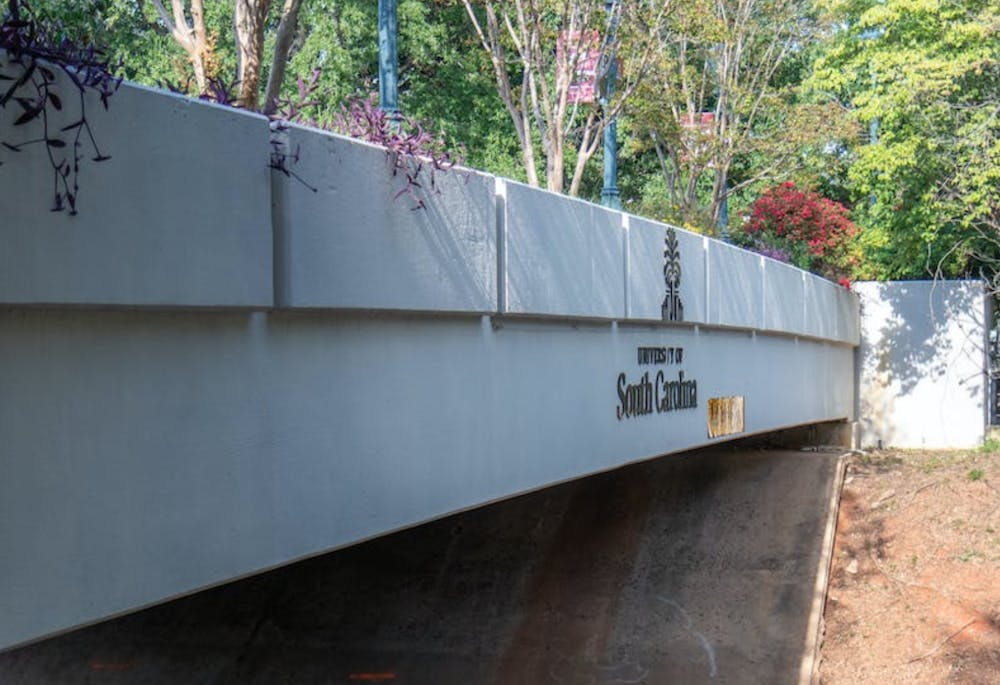Rex Tolliver, USC's new vice president for student affairs, learned a piece of advice from his great grandmother when he was young that he has carried with him ever since.
“You don’t live off of other people’s like,” Tolliver said. “Translation: Doesn’t really matter whether people like you or not, that’s not what’s going to determine if you are going to make it.”
For him, transparency has always played an important role in his interactions with students and faculty — even if people may not like what he has to say. He said he plans to be authentic whenever he faces challenges at the university.
As the vice president for student affairs, Tolliver supports student success by overseeing student life, campus recreation and student health and well-being.
Tolliver spoke with several students about what they believe are the main issues at USC when he came to USC’s campus for his candidate visit in July.

One student, third-year international business and marketing student Cody Markow, said he discussed obtaining funds for Pillars for Carolina, a summer program where incoming freshmen get to come and explore campus before moving in during the fall.
“He recognized how important (Pillars) was, but then gave me a really great example of how it’s also important to keep the sophomores and the juniors and the seniors in the loop as well,” Markow said.
Since the board of trustees confirmed him in August, Tolliver said his priority is to hear from all students. He plans to listen to their most immediate needs on campus before moving forward to work towards his long-term goals for the university, such as bringing an even more community-centered atmosphere to USC.
Tolliver and University President Michael Amiridis held a student forum called Imagine Carolina to begin hearing from students. He hopes to continue inviting students to talk to him in events such as ‘Tuesdays with Tolliver,' where students will be able to communicate their concerns about the university with him.
Tolliver said he has also heard from and spoke with students by walking up to them on campus or in the student section at Williams-Brice Stadium.
“I thoroughly enjoyed the first home game," Tolliver said. "Not only was I there, the president and I — along with his wife — actually started in the student section. We did Sandstorm in the student section, which was exhilarating in and of itself.”
Tolliver plans to gather all of the student suggestions to prioritize the most-recognized issues.
So far, concerns over mental health, parking, student pay and the student experience at USC have been the most common, he said.
“Parking has come up in almost every single meeting that I’ve had,” Tolliver said. “I just have to be frank and honest — I don’t know how much work I’ll be able to do on (parking).”
However, Tolliver already has plans for restructuring the student health and well-being services at USC. He plans on conducting a national search in the next month for a new associate vice chancellor for Student Health and Well-being, as well as taking more of a community approach to student needs.
“When (students) come to campus, they’re dealing with a lot of different types of issues, and most of them are not whether or not a student can do the work in the classroom," Tolliver said. "It’s those impediments that they’re dealing with outside of the classroom that impact what’s going on inside."
Faculty and staff are key in understanding and recognizing these issues — not just the counseling center, Tolliver said.
“There has to be a broader approach and understanding," Tolliver said. "Once we understand what the issue is, then the community must be committed to working to address the things that we’re seeing happening with students."
Another area Tolliver is interested in is how the administration can make the university more “user-friendly.”
Anna Edwards, the associate vice president for Student Life, she said she hopes that can bring a new perspective on how the university can get rid of unnecessary complications.
“Every institution has its situations, but I think the combination of all of that, plus a new president, a new vice president of student affairs and a new provost, who are all starting at the same time ... gives me hope that we’re going to look at things differently and maybe reach a different conclusion,” Edwards said.
For now, students may run into Tolliver participating in Sandstorm at home football games or standing on the Pickens Street Bridge, drinking his morning coffee and watching as students come and go.
“I am the chief student advocate," Tolliver said. "I will be where students are."

